Defence Principal Secretary Patrick Mariru has called upon all stakeholders in the space sector to help Kenya develop a vibrant Space Policy and Space Bill that align with best international standards.
The PS said, the move would help promote responsible behaviour in the global space community, and most importantly suit the national interests as Kenya positions herself to become a space fairing nation.
Mr. Mariru made the remarks today during the launch of a Technical Advisory Mission (TAM) to Kenya from the United Nations Office of Outer Space Affairs (UNOOSA) at the United Nations Offices in Gigiri, Nairobi.
The Space Bill and Space Policy are being developed by the Kenya Space Agency (KSA) as the Agency seek to efficiently promote, coordinate and regulate space-related activities in the country.
TAM is intended to provide the stakeholders in Kenya’s space sector with a normative framework towards having a responsible national activities in outer space.
“Through an understanding of the treaties, the principles and the guidelines governing peaceful uses of outer space, we will be better placed to craft our own policies and legislation that take cognizance of our national interests, our obligations as a responsible State Party and our aspirations as an active player in the utilization of space science, technologies and applications for our national socioeconomic development,” the PS affirmed.
The official thanked the UNOOSA team and the Government of France for being cross partners and supporters in capacity building for Kenyan space sector on the fundamental principles of Space Law under the ‘Space Law for New Space Actors’.
He said the Technical Advisory Mission to Kenya is intended to provide legal and technical advice and support the Ministry as well as infuse international perspectives aimed at enriching the development of the country’s fundamental documents – the Kenya Space Policy and the Kenya Space Bill.
The PS said the purpose was to align them with key provisions in the International Space Law and make Kenya be in compliance with its international obligations as a State Party to the Outer Space Treaty.
He underscored that UNOOSA has been a great friend of Kenya by supporting various Kenyan space projects among them the developers of the 1st Kenya University of Nairobi Satellite – Precursor Flight (IKUNS-PF), Nanosatellite, the first Kenyan-made Nanosatellite that orbited in May 2018.
The satellite was developed by a combined team from the University of Nairobi and the Kenya Space Agency, with technical assistance from Japanese Aerospace Exploration Agency (JAXA) and UNOOSA.
“UNOOSA further supported the Climate Camera (ClimCam) Project where Kenya, Egypt and Uganda are collaborating in the development of a high-resolution Climate Camera payload to be flown for free in the International Space Station. This is a capacity building project awarded by Airbus Defence and Space and the United Nations Office of Outer Space Affairs (UNOOSA) under the ‘Access to Space for All Initiative’,” the PS reiterated.
The University of Nairobi is developing a 3U nanosatellite through international cooperation between UNOOSA, the University of Arizona and The Space Trust whose primary mission will be to pioneer an Innovative Space Diplomacy in Orbit through messaging of peace. The nanosatellite will be launched aboard the Vega-C rocket under the auspices of UNOOSA.
“I hope we all take advantage of the international perspectives and experiences of our partners from developed space faring nations and UNOOSA to develop a sound policy, legal and regulatory framework that will spur Kenya’s space sector and space economy for Kenya’s national socioeconomic development,” Mr. Mariru said.
Present during the opening of the three-day workshop include the UNOOSA Director, Mr. Niklas Hedman, the Chairman of the KSA Board, Maj Gen (Rtd) James Aruasa among other space stakeholders.
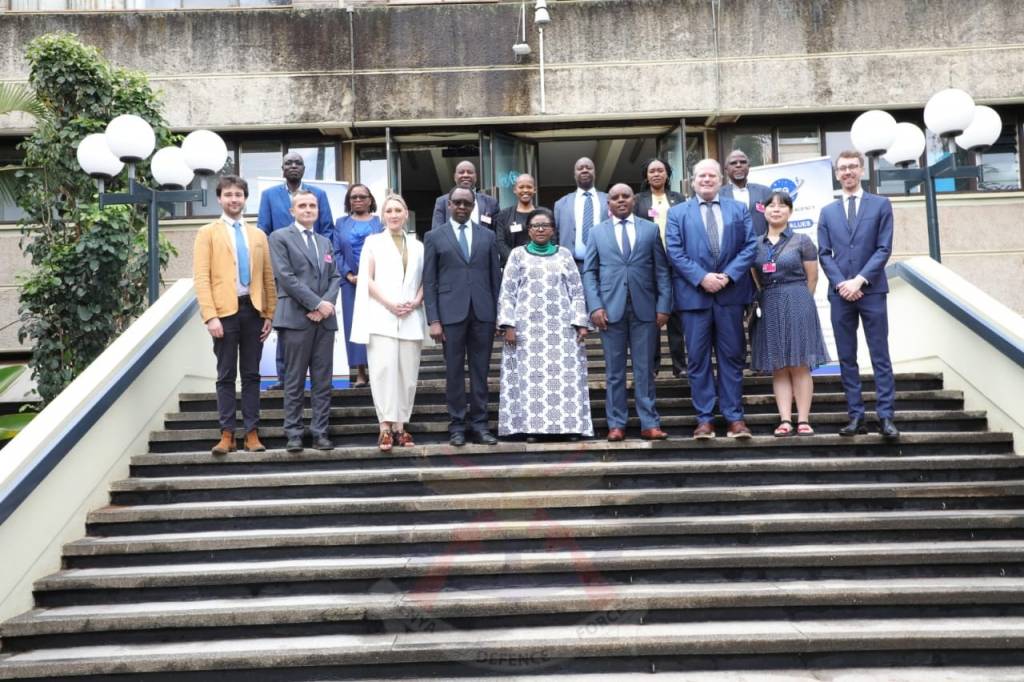
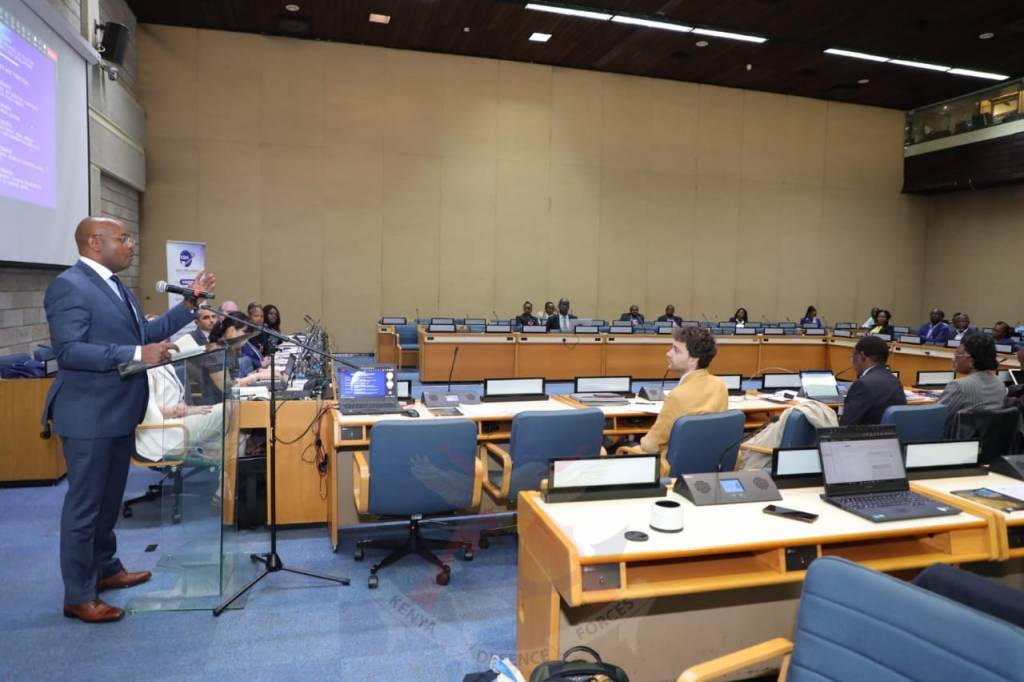
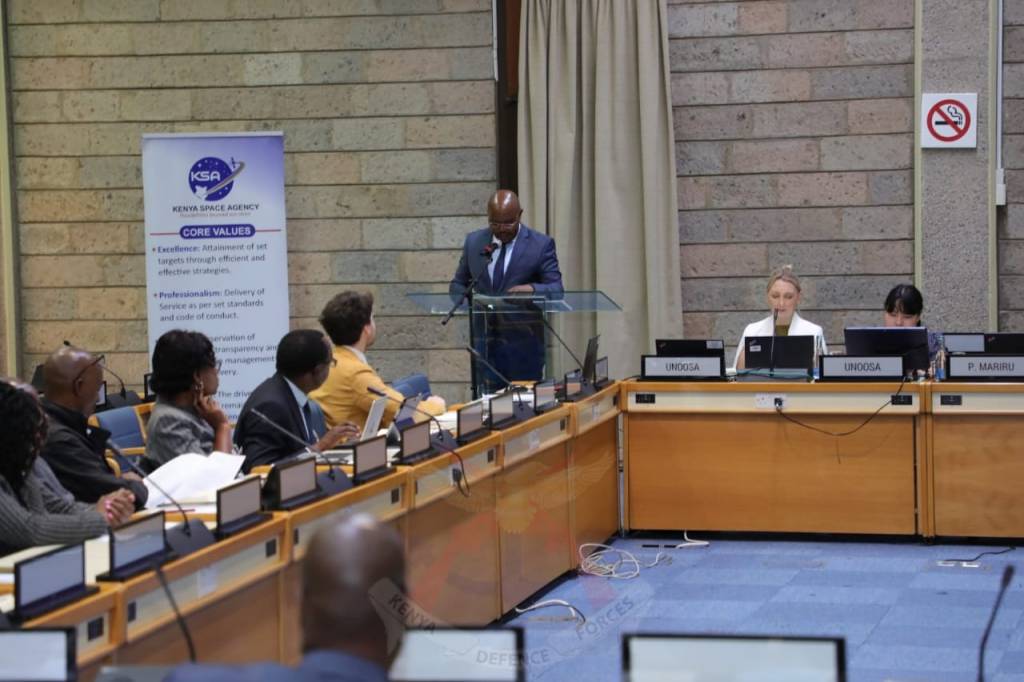
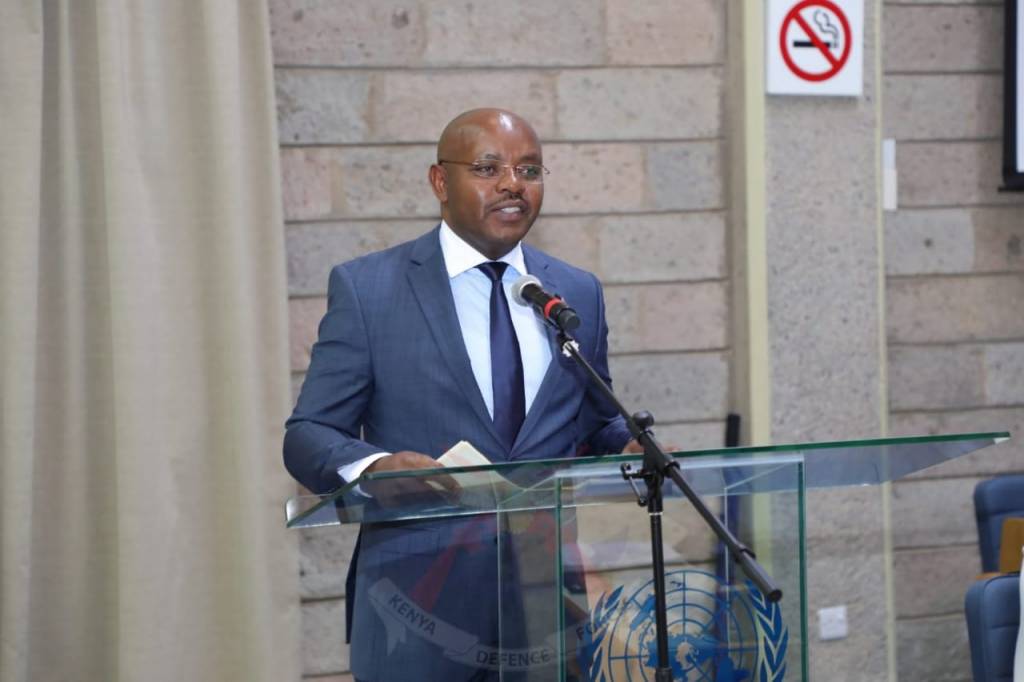

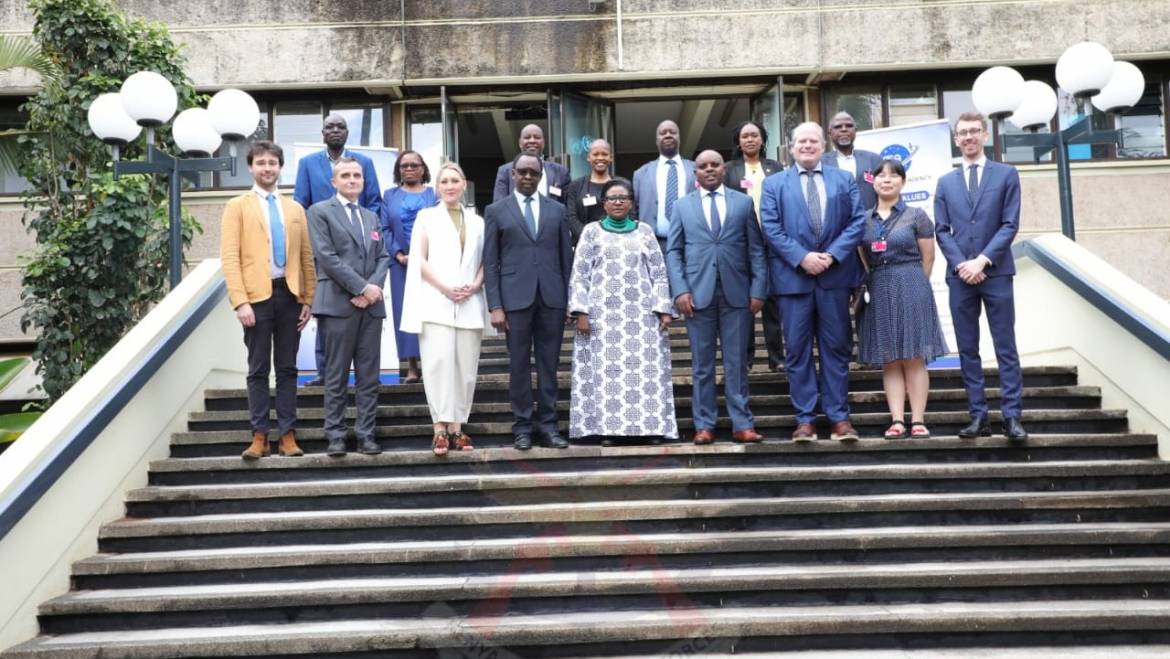
Add Comment